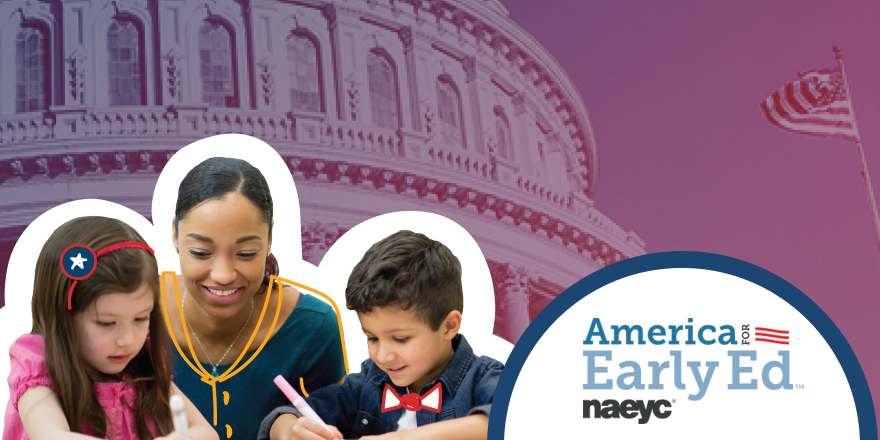Well Aware
It’s time to move from “Our Votes. Their Futures.” to “Their Votes. Our Futures,” and make sure all of our elected officials know about and are held accountable for investing in high-quality early childhood education that benefits our children, families, and economy. Join us to welcome your new and returning Senators and Representatives as Early Ed Takes Congress at NAEYC’s 2019 Public Policy Forum, happening in Washington, DC from February 24 – 26!
Well Done
Last Friday, the Administration for Children and Families announced that 45 states and territories have been awarded funding through the Preschool Development Grant Birth through Five Initiative, to improve states’ existing early childhood landscape by building upon existing federal, state, and local early care and learning investments.
Congratulations to all, and we look forward to supporting our members, Affiliates, and partners in the implementation of this birth through five work; to aligning these efforts with those around CCDBG implementation; and to prioritizing the workforce among the planning and coordination efforts on deck.
As Well As…
Check out how some AEYC Affiliates are kicking off the new year in your states!
- IowaAEYC is gathering educators to welcome their state legislators during this month’s 2019 Early Childhood Day on the Hill! (They’re not alone; check out your Affiliate connection for more information and legislative action!)
- “Voters and parents want our children to start school prepared to thrive.” Idaho AEYC highlights the same message coming from everywhere, from state polls to national ones.
- Maine AEYC is looking for early childhood professionals to join a new ECE Policy Leadership Program supporting their state’s educators to speak up and speak out!
- Governor Tom Wolf’s Ready to Start Task Force, co-chaired by PennAEYC’s Executive Director, Jodi Askins, announced key themes and initial findings to address health, human services, and education policy for infants and toddlers in their state.
- “It’s time we get something done.” Texas AEYC and other advocates join together to call for improvements to their state’s child care system in the wake of an investigation.

Well Said
“Not paying adequate wages to support a stable, skilled workforce is irresponsible to the millions of children needing care. Asking middle- and working-class families to pay ever greater shares of their incomes for child care clearly is not feasible. Meanwhile, public policies increasingly push parents into the workforce, making the availability of affordable quality child care that much more critical. The only viable solution would appear to be for us to see public child care the same way we view K-12 education, meaning that we all agree to share in paying the bill.”
The Workforce Crisis in Child Care Grows More Dire (Nonprofit Quarterly)
Because of how Congress worked to pass budget and appropriations bills this year, most early childhood education education programs are not being directly and immediately impacted by the current federal government shutdown. However, there are lots of ways in which it is affecting hundreds of thousands of children and families. For example, today is the first day that about 800,000 federal workers who are on furlough, or who are working without pay, will miss their first paycheck. We’re thinking about all of them, and the damaging ripple effect missing a paycheck has on their families, communities, and states, and we hope you are too.






